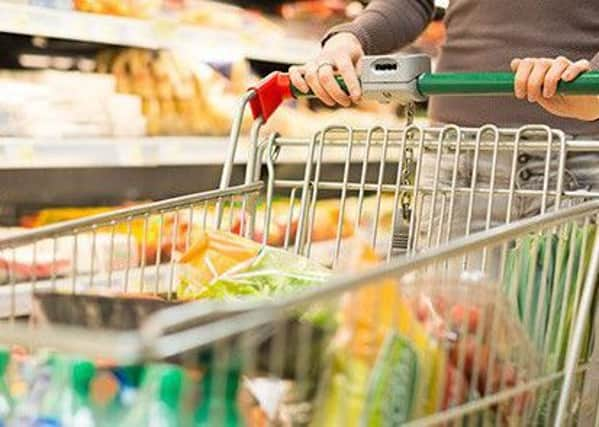Pressure on Bank eases as inflation dips to 12-month low


Figures from the Office for National Statistics (ONS) show the Consumer Prices Index (CPI) fell to 2.5% in March, compared with 2.7% in February and holding below the 3% recorded in January.
Economists were expecting inflation to hold steady at 2.7%.
It brings inflation closer to the Bank of England’s 2% target and raises some doubt over whether its Monetary Policy Committee (MPC) will follow through on a much anticipated interest rate hike at its May 10 meeting.
Advertisement
Hide AdAdvertisement
Hide AdExperts had widely expected rates to rise above 0.5% next month with another hike having been factored in for November.
“This latest reading means that inflation is now at its lowest rate since March of last year and has fallen by 0.5 percentage points already in 2018,” said Danske Bank chief economist Conor Lambe.
“For UK consumers, this fall in inflation is the second bit of good news in as many days as the latest labour market data showed a rise in the rate of wage growth. These two data releases reinforce the view that, going forward, the consumer squeeze is likely to ease gradually.
“But we shouldn’t lose sight of the fact that inflation is still above the Bank of England’s target and wage growth remains below its pre-financial crisis average. Consumers are unlikely to loosen their purse strings too much over the next couple of months.”
Advertisement
Hide AdAdvertisement
Hide AdSeparate ONS figures released earlier this week showed that average weekly earnings increased by 2.8% in the year to February.
However, investors were spooked by the unexpected drop in the CPI figure and what it could mean for interest rates, sending the pound down nearly 0.7% against the US dollar to 1.418 and nearly 0.6% against the euro to 1.148.
The largest downward pressure on the CPI figure in March came from footwear and clothing, having risen by just 0.7% on a monthly basis compared with 2% over the same period in 2017.
ONS head of inflation Mike Hardie said: “Growth in the price of goods leaving factories continued to slow, mainly due to a smaller increase in the price of food products compared with this time last year.”
Advertisement
Hide AdAdvertisement
Hide AdFood prices rose 0.3% compared with a month earlier, versus a 0.6% rise over the same period in 2017, with fruit and fish applying the most downward pressure, having fallen 1.4% and 1.3% respectively.
At the pumps, motorists also faced lower fuel costs last month, with petrol down by 1.6p per litre on the month to 119.2p per litre.
Diesel fell 1.5p to 122.9p.